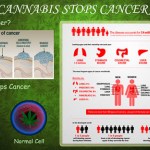marijuana
When I first started to take an interest in medical marijuana, I was struck by how much it reminded me of herbalism. Although herbalism is scientifically the most plausible of modalities commonly associated with "complementary and alternative medicine" (CAM), the use of herbal medicines still involve a number of problems, the biggest of which is what I like to call either the delivery problem or the bioavailability problem. In brief, herbs, when they work, are adulterated drugs. The active ingredient is often a relatively small, embedded in thousands of other constituents that make up herbs,…
In “The Invisible Workforce: Death, discrimination and despair in N.J.'s temp industry,” NJ Advance Media reporter Kelly Heyboer investigated conditions facing temp workers in New Jersey, which now has one of the largest concentrations of temp workers in the nation. She reports that growing demand for temp workers has led to the proliferation of “temp towns” — places with dozens of temp agencies and neighborhoods full of temp workers, many of whom report low pay, wage theft, racial and sexual discrimination, and unsafe workplaces.
Heyboer writes:
The temp agencies in New Brunswick are easy to…
Medical marijuana is just a backward strategy to get recreational marijuana legalised. It's like the potheads twenty years ago who would praise hemp's excellent properties as a fibre and fuel source. They didn't care about any other fibre crops. It was a transparent ruse.
A medical intervention's legality should be pushed by worldwide medical consensus, not by a regional cultural predisposition to enjoy the compound's recreational use. Medical marijuana is a non-issue in European medicine.
That said, I believe the enormous public money put into the customs, legal and punitive systems to…
About five weeks ago a month ago, I finally wrote the post I had been promising to write for months before about medical marijuana. At the time, I also promised that there would be follow-up posts. Like Dug the Dog seeing a squirrel, I kept running into other topics that kept me from revisiting the topic. However, recently the New York Times gave me just the little nudge I needed to come back and revisit the topic, first by openly advocating the legalization of marijuana, then by vastly overstating the potential medical benefits of pot (compare the NYT coverage with my post from last month…
The U.S. "war on drugs," besides failing to meet its goals, has demonstrated a stubborn ignorance of the effects that different drugs have in the human body. Granted, some drugs cause degeneration and are properly outlawed. Opiates such as heroin and stimulants such as cocaine and methamphetamine take a harsh physical toll and leave users addicted to the chemical. But classified along with these truly dangerous drugs are some of nature's most mysterious medicines. New research shows how marijuana, psychedelics, MDMA and even ketamine have positive physiological and psychological effects that…
I'm so proud of my home state for affirming equality for all in the ballot box rather than in the courts. I was born and raised in Maryland, although I've spent more of my adult life in Virginia, one of the big things I've noticed in the divide between the two states (and I love both of them) is that Marylanders do a better job at taking care of each other, and running an effective state with high quality services. Marylanders believe government can work, and generally (outside of Baltimore) it does. Marylanders also reject bigotry, and with question 4 (the Maryland Dream act) and question…
The Associated Press article title "Study: Alcohol more lethal than heroin, cocaine" succeeded in getting me to click through to the article. When I did, I wasn't surprised to learn that the study in question didn't actually find alcohol to be more lethal than heroin. What it concluded was that alcohol is the most harmful drug (out of 20 studied) when harms both to users and to those around them are tallied.
The study -- authored by David J. Nutt, Leslie A. King, and Lawrence D. Phillips and published in The Lancet -- used multicriteria decision analysis modelling to assess the harms caused…
Thank you for visiting our introductory post on K2 Spice and welcome readers from Maia Szalavitz at the TIME Healthland blog. The comments to which she refers can be seen by scrolling to the end of the post.
However, our blog has moved since this was posted in Feb 2010 and any further comments are closed. But if you wish to share any experiences and participate in further discussion, please visit us at our new home here.
If you're interested in our other posts on K2 Spice or other legal highs, click here.
Finally, if you're interested in our comments on Purdue University chemist and…
Yesterday, the influential AMA (American Medical Association) announced that it would cease its opposition to the concept of medical marijuana and instead advocate for a change in federal classification of the drug. From the LA Times:
The American Medical Assn. on Tuesday urged the federal government to reconsider its classification of marijuana as a dangerous drug with no accepted medical use, a significant shift that puts the prestigious group behind calls for more research.
The nation's largest physicians organization, with about 250,000 member doctors, the AMA has maintained since 1997…
While I was all caught up today with thinking about the 95th anniversary of the Ludlow Massacre and the 10th anniversary of the Columbine High School shootings, I was reminded of some lighthearted goings-on in Colorado today that take away some of the gloom on this Monday. (The Ludlow post is getting great traffic, by the way, but my historical posts on tragedies fail to generate much commenting for some odd reason.).
My good friends at Denver's Westword independent weekly paper tweeted me last week with this headline on from their blog, The Latest Word:
CU Chancellor, obviously high, sends…
Through the results of widespread experimentation of the... well... let's say "non-scientific" variety, it's pretty well known that marijuana has the side effect of making the user very hungry. This is one of the many physiological effects of the active ingredient THC (Δ9-tetrahydrocannabinol). More relevantly, however, THC and other cannabinoids are actively being investigated for various useful clinical purposes, including the treatment of cancer through the inhibition of tumor growth.
A new study by Salazar et al. in The Journal of Clinical Investigation demonstrates that THC causes…
Back in August, I reported on an ACMD study buried in the back of a UK government report. The study gave strong evidence that the current drug classification scheme in the UK was fundamentally flawed and was not based on the actual danger of a given drug. The study has now been published in this week's issue of The Lancet. The Guardian also has a nice piece on it today. The bottom line is that the current unscientific drug classifcations that the UK (and the US) currently rely on need to change. Now.
Here's what I originally wrote:
(1 August 2006) Yesterday, the House of Commons…
Yesterday, the House of Commons Science and Technology Committee released a report entitled Drug Classification: Making a Hash of It?, which challenges the logic behind current drug classifications in the UK, especially when tied to legal penalities. The report discusses specific cases where drugs were misclassified or their classifications were changed for political, rather than scientific, reasons. The report is particularly critical of the Advisory Council on the Misuse of Drugs (ACMD) for not doing enough to push for a more scientifically based drug classification system.
The…
This post from the archives describes a recent research finding that may be welcome news for some....
(24 May 2006) If you know what I'm talking about, and if you are in fact "cool", then you might also be interested in the findings presented Tuesday by Dr. Donald Tashkin and his coauthors at an American Thoracic Society meeting in San Diego. In short, smoking marijuana does not cause lung cancer:
The smoke from burning marijuana leaves contains several known carcinogens and the tar it creates contains 50 percent more of some of the chemicals linked to lung cancer than tobacco smoke. A…
From the archives:
(19 January 2006) Which of the following does not belong?
(a) abortion
(b) medical marijuana
(c) physician-assisted suicide
Although all three are contentious and litigious medical issues, the answer seems to be choice (b), medical marijuana, according to the U.S. Supreme Court.
On January 17, the Supreme Court ruled 6-3 in Gonzales v. Oregon that the U.S. Attorney General did not have the authority to criminalize the prescription of lethal doses of drugs, currently allowed under Oregon's Death with Dignity Act, originally approved in 1994. The act, approved again in a…



